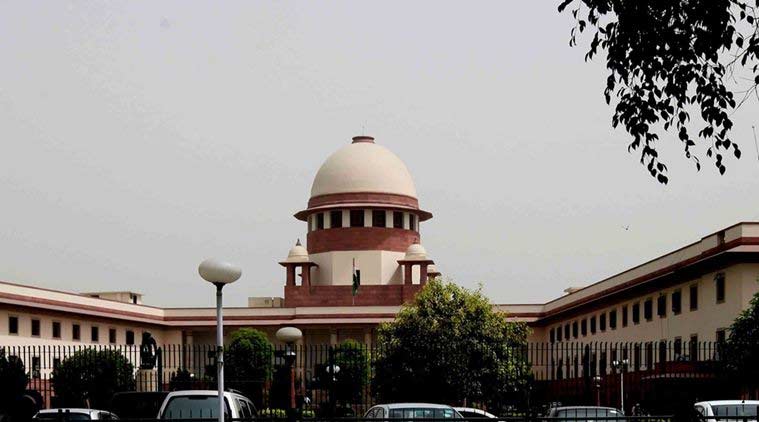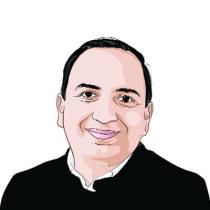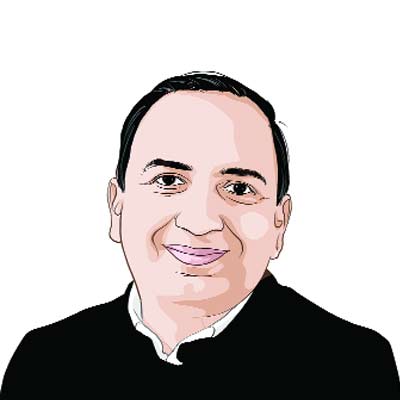Liberty without statism
Supreme Court upheld individual freedom, dignity, equality in Sabarimala case. But statism has its own dangers.

It is not an exaggeration to say that Hinduism has been nationalised through the agency of the state.
Indian Young Lawyers Association and Ors vs The State of Kerala is a landmark judgment. The outcome, that women between the ages of 10 and 50, should be allowed entry into the Sabarimala temple, was indeed the correct finding. The fact that this restriction is of recent rather than ancient vintage should have been enough to reach the conclusion. But the judgment articulates different approaches to the Constitution that restore a kind of enchantment to constitutional interpretation. The majority outcome is the right one. I agree with the conclusion, but worry that some aspects of the reasoning towards it are overly broad. In that context, Justice Indu Malhotra’s dissent provides a cautionary tale.
So here is what is salutary about the judgment. Justice D Y Chandrachud’s judgment at long last clarifies principles the Court has obscured over the years. First, the primacy of individual freedom over group rights. It is important to understand the normative basis of this claim. The normative basis is the very same one on which groups claim their rights. Groups often claim that practices they would not agree with should not be imposed on them. All that is required is to extend that same principle to individuals, where groups cannot exercise coercive power over individuals. If autonomy is a value that undergirds group rights, it is a value that goes all the way down to individuals. This is a claim that Justice Malhotra’s dissent ignores.
More importantly, this judgment makes the principle of constitutional adjudication clear. The state has an overriding interest in upholding freedom, equality and dignity. All it needs to ask is whether a practice is compatible with these values. This approach has an elegant moral clarity to it. It also makes clear that practices incompatible with these values should not have the state’s backing. The Court must show consistent courage of conviction on this. It also minimises the Court’s need to get entangled in questions of what is essential to a religion and what is not.
Third, and more profoundly, this should not be seen as an anti-religious judgment. By arguing that the freedom of religion clauses should be seen in the context of other rights and an overall constitutional morality that emphasises freedom and equality, the judgment creates the conditions for authentic religious identification to occur. Religion should be subordinate to freedom and equality. But arguably the true meaning of religion can unfold when it is exercised under conditions of freedom and equality. For only then do we know that a practice or belief is not just a function of coercion or asymmetries of power, but is genuinely held. If women choose not to go to Sabarimala out of their conception of piety, they are still free to do so, but we will know that piety is not a result of enforced exclusion.
But as salutary as these principles are, Chandrachud’s reasoning should be taken cautiously as well. Let us say you agree with Chandrachud’s very attractive vision of radical equality. You also agree that the structural that reproduces inequality comes from many sources, including religion and culture. You also agree that these practices should change. But it still leaves open the question whether the state should rush in on every occasion it sees a cultural practice it does not like. Liberalism has a two-pronged test. First, whether a practice violates freedom and equality. But is also mindful of the means deployed to overcome it. What should be the threshold of demonstrable harm to someone’s civic standing for the state to intervene? Not every wrong has to be righted by the state. It is discriminatory that a church does not ordain women priests. But should the state oblige it to do so? Sabarimala was the right call. But Chandrachud’s judgment almost makes it sound as if the state should intervene wherever it encounters any cultural practice that in the slightest form reproduces an ideology of inequality. Indu Malhotra is right to worry that this is a recipe for whole scale statism, in the name of social reform.
The suspicion is buttressed by the rather cavalier use of the “untouchability” clauses. Chandrachud is right that the Constitution has a broader transformative vision against all kinds of discrimination. But to be honest there is something gratuitous about using the untouchability clauses to adjudicate this case. As Indu Malhotra points out, this use has no precedent. Untouchability had a historically specific kind of vileness. But by stretching it to include any form of discrimination, the court has obscured a lot of specificities. Even in the Sabarimala case, the exclusion is confined to only one shrine, not hundreds of other temples. The majority was right to argue that even this should not be acceptable. But to conflate every form of discrimination to untouchability is not just stretching historical analogies to the point of disbelief, it also opens up the Court to a kind of conceptual indiscipline. The untouchability clause will, like the right to life, become a catch-all.
There is a third issue of the relationship between state and religion that we skirt. It is not an exaggeration to say that Hinduism has been nationalised through the agency of the state. The state now runs tens of thousands of religious institutions. If you look at the case law, it is hard to argue that temples are autonomous creatures outside the state in the way in which churches might be in the US. They are all creatures of state notifications and legislation. We assume that the state is the agency of defining the meaning of religion. Malhotra is more insightful on the phenomenology of deities and religious worship than the flattening discourse of the majority. The state has consolidated Hinduism in one homogenous legal identity. While we strike a blow for freedom we forget that in India communities do not have the freedom of self-identification. The state decides which “religion” a particular sect belongs to or if they are one at all. They cannot self-identify. This because we grant civic rights, like freedom to run institutions based on religious denomination. Malhotra is right to worry, that in the concern for freedom we have obscured the sects rights to call themselves whatever they want.
It is high time the Court batted for individual freedom, dignity and equality. The majority judgment does just that. But a Panglossian statism poses its own dangers. Justice Malhotra was right to remind us of that fact. If God should not hold the state hostage, neither should state become God. It is the dignity of Indian constitutionalism that this conversation can continue.
The writer is vice-chancellor, Ashoka University. Views are personal
For all the latest Opinion News, download Indian Express App
More From Pratap Bhanu Mehta
- Verdict as first wordThe Supreme Court judgment does not provide a consistent framework to ascertain future legitimate uses of Aadhaar...
- The second comingGlobal cooperation is a vital element in managing global economic interdependence. But global cooperation is exactly what has been domestically de-legitimised in almost all democracies.…
- On libertyTomorrow’s India needs a new Charter of Freedom. Does Congress have the courage to sign on to it?..








































No hay comentarios:
Publicar un comentario